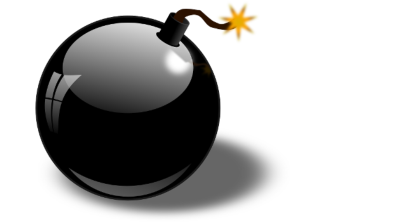
The young guy sitting on the park bench is absorbed in his phone. The professional working late in the office is totally focussed on his screen. The young couple watching a movie at the guy’s request is unaware that his girl is fidgeting uncomfortably. The pre-teen at school surreptitiously shares something on his phone with his friend. The woman in the office suddenly finds, unbidden, some images flashing on to her screen.
They’re all watching or being confronted with porn.
It’s become mainstream. Talk show hosts such as Graham Norton unashamedly comment that they’re porn-watchers. Some couples say that watching porn helps improve their sex lives. Even therapists may recommend some porn for those needing treatment. Porn-watching then has become a ‘normal’ activity.
Is it OK to watch porn then?
When a practice becomes widespread, people tend to think it’s ok. But at the same time, there’s an increasing awareness of the prevalence of sexual abuse, especially by males in a position of power. A politician has just lost his job not simply because of having an affair with a staffer, but because that affair represented an imbalance of power in the relationship. It’s that imbalance that was the problem.
The MeToo movement has given rise globally to a swathe of instances where women have finally felt they could come forward and make claims about how they were exploited by men in a position of power, often many years ago. Harvey Weinstein and a deceased Jeffrey Epstein are in the process of being held to account, and family TV icon Bill Cosby has been convicted and sentenced for his crimes of abuse.
How much does porn-watching undermine a basic respect towards women, that such claims seem to indicate?
With these two opposing developments it is clear that, in time, there is going to be an explosion of claims. Why?
Pornography is essentially a form of abuse
There is clear evidence that pornography, by its very nature, is abusive. The filming, the context of the sexual encounter being acted out, and the camera angles, all work together to show a submissive woman at the mercy of what a man wants to do. Girls who watch porn are being educated to think that it’s what a man wants that counts. Surveys of young girls show that they allow a guy to have his way with them, because they think it’s what the guy wants that matters. After one such sexual encounter, a girl said, “I think he liked my body.”
Guys too are being educated by porn to think that this is how relationships are. This is what girls like. Because they are getting most of their sex education through watching porn (as the statistics show), young guys are getting the idea that it is the male who is in charge, who has the power, and if girls protest, that is all part of the game. (The No Means No mantra in sex education programmes is an attempt to counter such attitudes.)
The insidious effects of porn
Not only is porn-watching affecting attitudes and perspectives towards sex, it is also affecting physiological function. Because some young guys spend so much time watching porn, they find it difficult to become aroused in a real relationship. Others are scared around girls, and find it easier to simply resort to the internet rather than negotiate the delicate and sometimes difficult process of forming a relationship with the opposite sex.
That’s one big reason why porn is such an insidious enemy of personal well-being and societal stability.
So as young women mature, and increasingly find it difficult to form satisfactory relationships with any males; or they find themselves subjected to increasing amounts of abuse, there are going to be more MeToo claims, more relationship breakdowns, more isolated and lonely people, and more help being sought for sexual addiction and erectile dysfunction.
Christians need to tackle porn-watching
Where is the church in all of this? Firstly, it has to be aware of the extent of the problem. Secondly, it has to acknowledge that it is a problem for many people sitting in our churches. Then, there has to be a will to address it in a culturally appropriate and sensitive way, not passing judgment, but in a way that helps people become aware that God is there for them, to forgive, rescue and rehabilitate. They will need support.
There also needs to be those who are prepared to be activists – to pray, work together, and address this issue in society in practical and strategic ways so that the viewing of porn becomes much more difficult.
Finally, there is the need to teach and model attractive Biblically-based alternatives of relationships between the sexes, of courtship and marriage.
Porn is a modern-day version of slavery – it enslaves the viewers, and the victims who abuse them. Who will come forward to deal with it? Or do we put it in the too-hard basket?

Liz Hay rejoices in living in a beautiful part of God’s creation in a high country mountain basin; and she also rejoices in hearing stories of God at work in people’s lives. One of her favourite activities is reading fascinating biographies that illustrate the wonderful ways God works uniquely with each person.